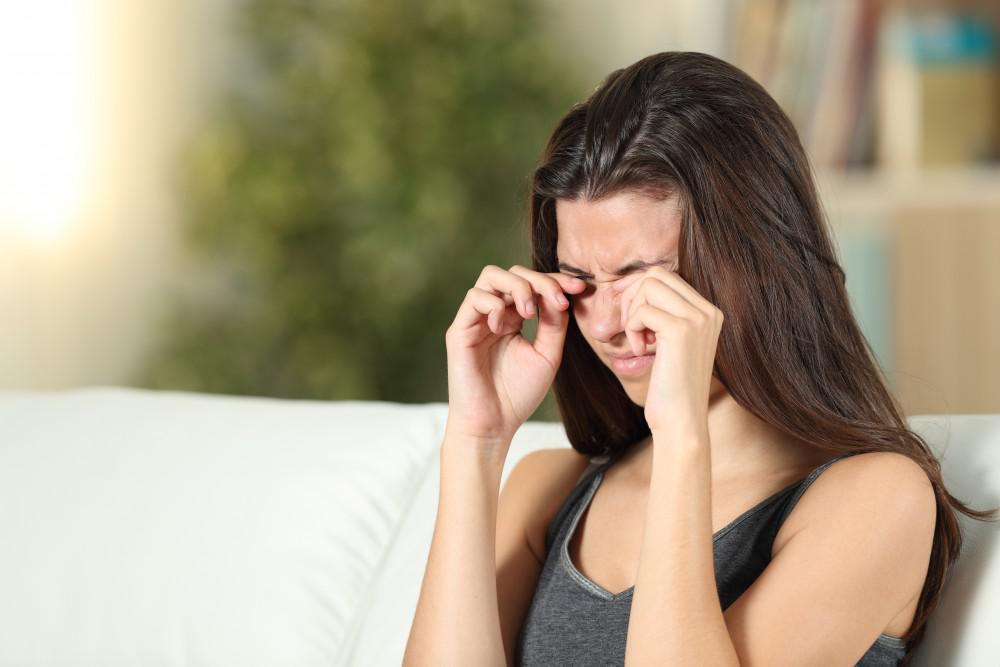Complications of Dry Eye

About 16 million Americans have been diagnosed with dry eye, a chronic condition that tends to become more common as we age. Some research indicates that number is probably much higher, with dry eye affecting nearly half of American adults.
If you have dry eye, its tempting to think that all you need is over-the-counter eye drops to keep symptoms at bay. But without medical attention and treatment, dry eye can lead to other eye problems, including serious issues associated with permanent vision loss.
At Rostami OPC in Reston, Virginia, Soheila Rostami, MD, treats dry eye using the most advanced techniques, tailoring every treatment to the individual patients unique needs, relieving symptoms and helping to prevent serious vision problems.
If you suffer from dry eye, heres why its so important to get medical treatment as soon as possible.
The important role of tears
Its tempting to think of tears as no more than a manifestation of sadness, but your tears do a lot more than express emotion.
Washing over your eyes with every blink you take, your tears help wash away dirt, germs, and other impurities that can damage your eyes and your vision. Dry eye happens when theres a problem with your tears or with the way theyre dispersed.
If your tears are of poor quality, they wont lubricate the way they should, or they may evaporate too quickly. At other times, your tear ducts or glands might not be working the way theyre supposed to, which means you wont be producing or distributing enough tears to protect your eyes.
Dry eye causes symptom like:
- Blurry vision
- Burning or itching sensations
- Feelings of grittiness in your eyes
- Light sensitivity
- Mucus discharge from your eyes
- Watery eyes
- Sore, itchy eyelids
If you have dry eyes, you might find that your contact lenses are very uncomfortable, or you might find it hard to see while driving at night. Without medical treatment, youre also putting yourself at risk of serious complications.
Dry eye complications
Considering the important role your tears play in maintaining eye health, its not surprising that when theres a problem with your tears, you can develop other problems, as well.
Conjunctivitis
The conjunctiva is a thin layer of cells covering the surface of your eye. If you have dry eye, this layer can become irritated and inflamed, leading to conjunctivitis. Symptoms of conjunctivitis include:
- Eye redness
- Light sensitivity
- Gritty sensations in the eyes
These symptoms can be exacerbated in people with chronic dry eye.
Corneal sores
Lack of tears allows tiny bits of grit or dirt to remain on your eye surface. When you blink, those particles can scratch your cornea, causing sores (or ulcers) that can lead to serious, deep infections and permanent vision loss.
Eye infections
When your eyes dont produce enough tears, or when the tears they produce are watery or evaporate too quickly, your eyes arent getting the protection they need to wash away germs. That means youre more likely to get infections and that risk rises even more if your corneas are scratched or damaged.
Decreased quality of life
Dry eyes can make it hard to read, drive, use a computer and perform other tasks. Without treatment, these changes can take a toll on your quality of life. Research shows that over time, lower quality of life associated with untreated dry eye can also lead to increased levels of stress and depression.
Dont ignore dry eye
Dry eyes are more than an annoyance. Without treatment, they can wind up threatening your vision and your eye health.
If you have dry eye symptoms, having a comprehensive eye exam is the best way to make sure you get the treatment you need to maintain your vision. To schedule your exam, call or book an appointment online today.
